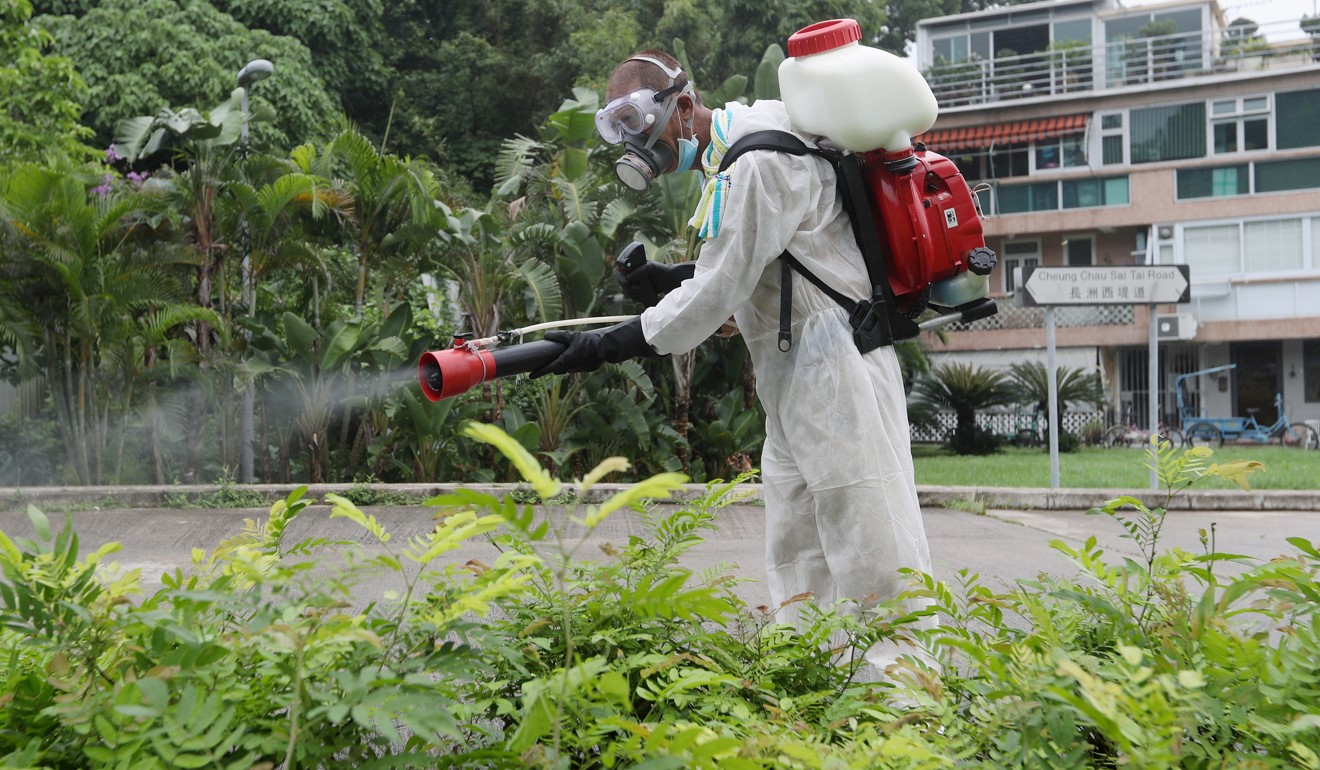
Devastating effects of Typhoon Mangkhut not enough to convince Hongkongers to be prepared for next big storm, new study says
- Survey by Chinese University finds that half of respondents do not plan on preparing for future storms
- Researchers call lack of concern among city’s residents worrying
The devastating effects of Typhoon Mangkhut appear to have had little impact on Hong Kong’s residents, if a new study from Chinese University is any indication.
A storm that injured 400 people, downed thousands of trees, smashed hundreds of windows and paralysed the city for days afterwards, Mangkhut was one of the most powerful typhoons on record.
But a survey shows some Hongkongers are not prepared – and have no plans to prepare – for another storm of similar ferocity striking in the future.
Only 52 per cent of those surveyed said they planned to search for updated typhoon information, stock up on food and drinking water, or stock up on basic medicines, according to the results of the study released on Thursday.

“The situation is worrying,” said Professor Emily Chan Ying-yang, of the faculty of medicine at Chinese University. “When natural disasters strike us, people are not fully prepared to deal with them – that’s what we are most concerned about.”
The study also showed that 33.1 per cent of respondents were injured, or had been affected, by Mangkhut. Meanwhile, 15 per cent said they went outside after the typhoon signal No 8 was issued, and in the majority of those cases the journey was non-essential.
Among the recommendations made by the study was for the public to learn how to prepare for a natural disaster, and to take a basic first aid course.
Conducted by Chinese University’s Collaborating Centre for Oxford University and CUHK for Disaster and Medical Humanitarian Response, the study questioned 540 people in telephone interviews.

Researchers also questioned another 610 people on dengue fever and found most of them had not taken sufficient mosquito preventive measures when they travelled.
Among respondents who left the city for more than one day in the previous year, 60.5 per cent visited dengue fever endemic regions, including Malaysia, Thailand and Singapore.
However, only 30 per cent took anti-mosquito measures, such as using mosquito repellent, wearing light-coloured clothing and using a mosquito net at night.
The study also found that 71.8 per cent of respondents believed their risk of contracting the disease was low, despite knowing about its potential seriousness.
Dengue fever is an acute mosquito-borne infection caused by the dengue virus. The best preventive measure is to avoid mosquito bites, according to the Centre for Health Protection.
Researchers called on the government and schools to step up promotion and education on disaster prevention and rescue measures, while reminding Hongkongers to stay alert to emergencies and epidemics, and keep first aid kits at home.

